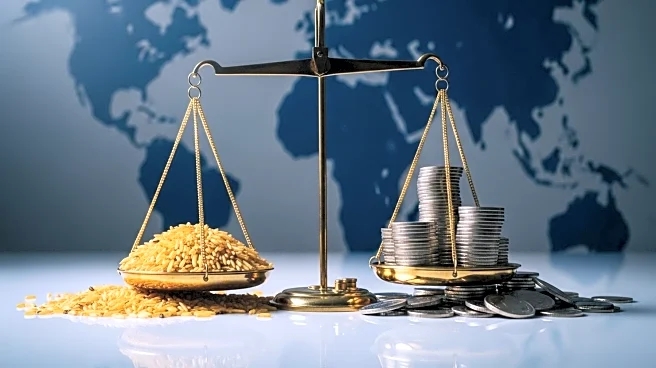What's Happening?
Trade negotiations between the U.S. and Japan have hit a snag due to a demand from President Trump for Japan to purchase more American rice. Japan's negotiators objected to the condition, viewing it as interference in domestic affairs. The demand contradicts a previous agreement that Japan would not need to lower tariffs on agricultural imports. The trade talks aim to finalize a $550 billion investment package from Japan to the U.S., but the rice demand has complicated the discussions.
Why It's Important?
The stalled trade talks highlight the complexities of international trade negotiations and the impact of agricultural policies on diplomatic relations. The demand for increased rice purchases could affect U.S. farmers and the agricultural industry, potentially boosting exports if successful. However, Japan's resistance underscores the challenges of balancing trade agreements with domestic interests. The situation may influence future trade policies and negotiations between the two countries, affecting economic ties and market access.
What's Next?
Negotiators will need to address the rice demand and find a compromise to move forward with the trade agreement. The outcome could set a precedent for future trade talks and impact U.S.-Japan relations. Stakeholders, including agricultural groups and policymakers, will be watching closely to see how the situation unfolds. The resolution of the trade talks may affect broader economic strategies and international trade dynamics.









